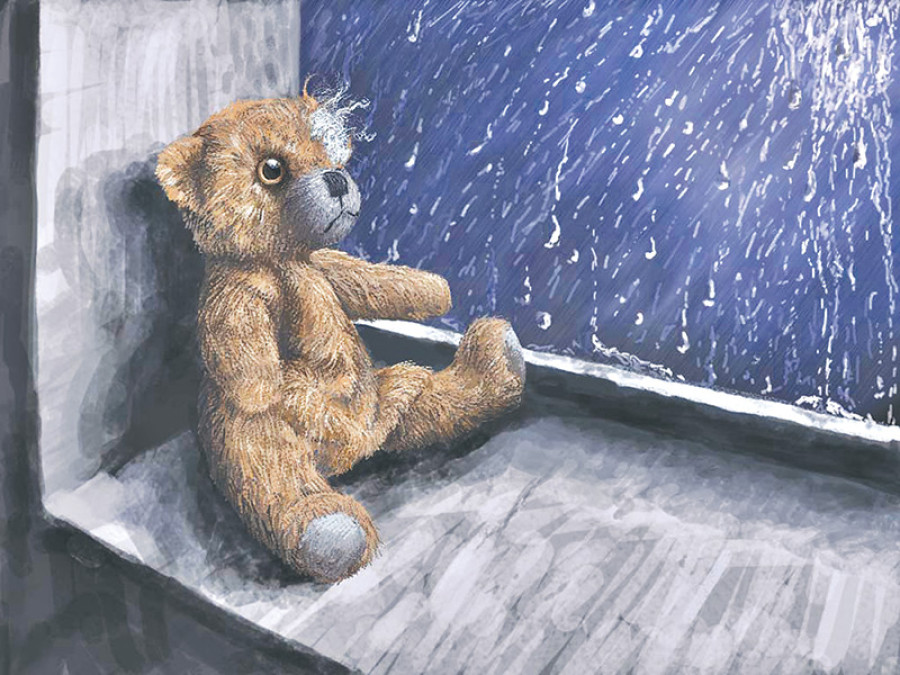Opinion
Young mothers
Adolescents are becoming pregnant and risking lives for lack of awareness
Eliza Apprazita Kc
According to the World Health Organisation (WHO) fact sheet on reproductive health, there are 6.6 million adolescents aged 10-19 years in Nepal, making up 23.2 percent of the total population. The average age of adolescent girls who become a mother before the age of 20 is 17.3 years. The Nepal Demographic Health Survey (NDHS) has revealed that 684,000 Nepalis aged between 15 and 19 years are sexually active. The average age of married and unmarried adolescent girls who had sex before the age of 20 is 16.4 years.
These are astounding figures. It is unfortunate that the country is losing these individuals with potential to early birthing, unwanted pregnancy, maternal death, parenting and other unwanted reasons. In most cases, early birthing can have a negative impact on a young mother’s education as there are high chances that she may drop out of school. Thus, employment opportunities also become limited for these young girls.
Burden to growth
Consequently, these young girls become dependent on others for the necessities of daily life, leading to a drop in their empowerment level. These women become more vulnerable to several situations in life and victims of various social evils and abuses. The legal minimum age of marriage in Nepal is 20 years, but as revealed by the Nepal Multiple Indicator Cluster Survey 2014 (NMICS), 48.5 percent of women in the age group 20-49 years were married when they were 18 years old, and 15.5 percent in the age group 15-49 were married by the age of 15.
When adolescents get married at a time when their biological system is not even fully developed, pregnancy means putting their lives at risk and exposing them to potential complications. These young women could be doing something productive and making a contribution to the country, instead they have to go through this social problem and bear the cost alone. This is a grave situation where youths are made to encounter and endure such a scenario. As a consequence, not only their present situation but also their future is jeopardised; and in turn, the country also risks losing young budding minds.
Adolescence is the phase when an individual progresses from childhood to adulthood in the realm of physical, psychological and social aspects. It is called the conjugator of childhood and adulthood. Girls are becoming pregnant and exposing themselves to the risk of mortality when they should be engaged in understanding the changes happening to them as they pass from childhood to adulthood—this is the severest problem our country is facing. This is the time when they should be figuring out their dreams, forming their values and exploring their inner passions in order to do something in life, but they are being forced to face such hardships. It is high time to re-think our social norms and check our social values.
Nation and State in the wrong
What are the reasons behind these unwanted and life-threatening pregnancies? Early marriage, sexual violence and unsafe sexual activity could be the major reasons. Another reason could be lack of awareness about the proper age for marriage and about the hazards of early childbirth. Some people in remote regions believe that once a girl reaches puberty and is undergoing her menstrual cycle, she is ready for marriage.
Should the government of Nepal be questioned about this state of affairs since it is up to the system to eradicate such social issues? I personally believe that it is the government’s sole duty to protect and unite the country, but this does not happen in Nepal because politicians are busy playing political musical chairs. However, there is hope for these young girls as various international companies and organisations have been providing aid and offering a solution to this problem to some extent. For example, the United Nations Population Fund (UNFPA) has launched a comprehensive sexual education programme and non-governmental organisations (NGOs) have started school-based intervention with peer education.
An American poet and etymologist named John Ciardi has written, “You don’t have to suffer to be a poet, adolescence is enough suffering for anyone.” This quote touches me deeply about what goes on during the adolescence phase and its outcome in later life. Resolving this problem requires efforts on two fronts: civic engagement and education. This way, members of society will be sensitised about its negative consequences and put an end to this vicious cycle once and for all so that there will be a better future for our country Nepal.
- KC has a Master’s in Public Health, and currently works at Save the Children




 9.7°C Kathmandu
9.7°C Kathmandu










